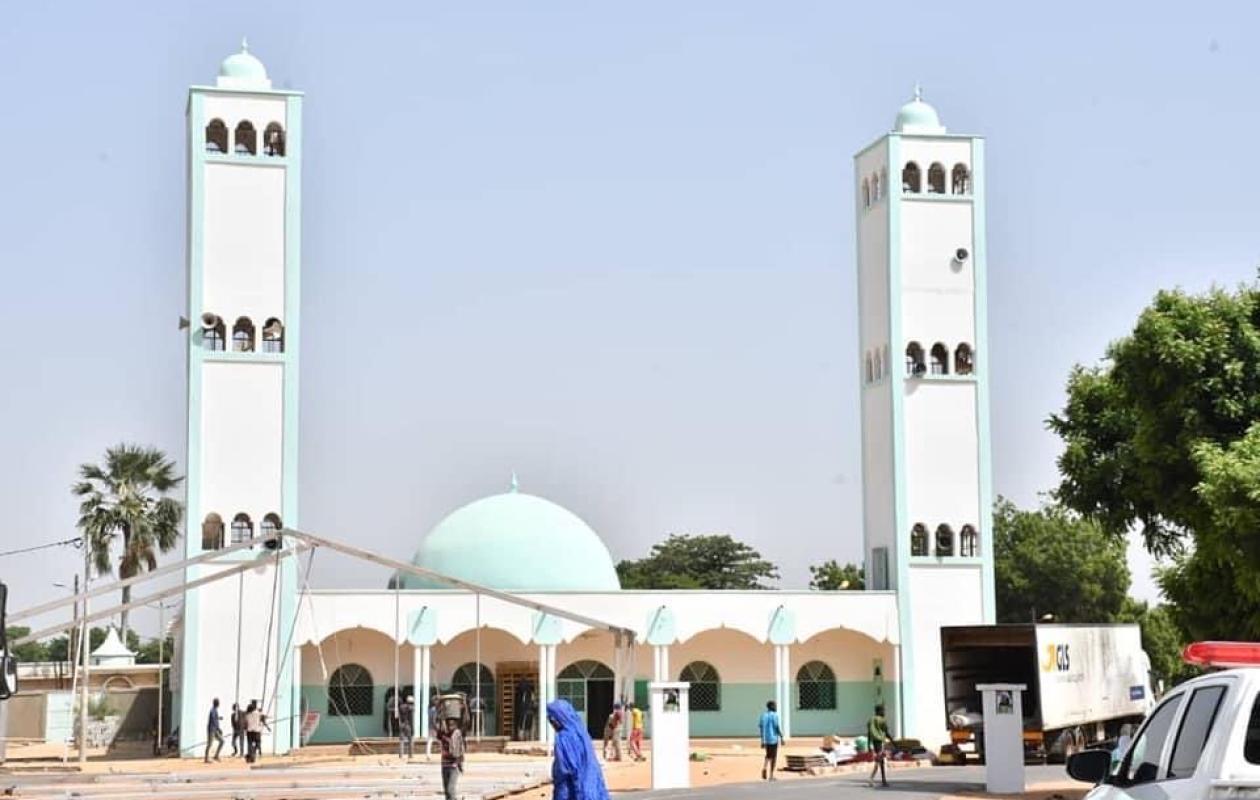
Thiénaba Seck : Un « gouvernement islamique » dans un État laïc
Founded in 1882 by Ahmadou Amary Ndack Seck (1830-1899), one of the religious leaders and companions of Cheikhou Ahmadou Ba, son of Limamoul Mahdiyou Ba from the town of Wouro Mahdiyou, who led the memorable jihad of 1875, Thiénaba, the capital of the rural community of the same name, one of the three sub-prefectures of the department of Thiès, is located between the communes of Thiès and Khombole. This site, whose choice was supposedly revealed to the holy man by a luminous sign and which is thus one of the first religious centers of Senegal, aims to be the guardian of the temple of Sharia, Islamic law, in a secular state like Senegal where 95% of the population are Muslims.
In this religious city, the religious leaders who, while recognizing the administrative authority, are the descendants of the founder have taken care to create a sort of demarcation line that divides the locality into two parts: Thiénaba garé and Thiénaba Seck. This last part which houses the religious authorities, distant from Thiénaba-gare of about a kilometer, also houses the administrative authority and all the infrastructures related to the administration, created by the colonist. Thus, the religious authorities, to perpetuate this will of their religious guide, established the sharia to judge those who dare to cross the prohibitions of Islam. All provisions are taken for this purpose.
Indeed, alongside the caliph, there is the imam of the great mosque who is responsible for ensuring the application of Islamic law. As such, he has custody of the whip, one of the instruments for the correction of those who defy the prohibitions. Every year, on the occasion of Gamou, the event commemorating the birth of the Prophet Mohammad (PBUH), the populations of this locality as well as the faithful who have pledged allegiance to Thiénaba make the commitment, in front of the mosque and the general caliph at the head who embodies religious authority, to respect and enforce the principles and values of Islam.
This is why in Thiénaba Seck, the consumption of alcoholic beverages, smoking, and fornication are prohibited, according to information gathered on site. Regarding the latter prohibition, surveillance is more stringent. A woman who becomes pregnant outside of marriage is expelled from the rural community until she gives birth. And if she wishes to return to the locality, the latter must undergo flogging, as provided for by Sharia law, by taking 100 lashes in the village square in full view of everyone, before returning to Thiénaba Seck. The imam, or whoever he chooses to administer the 100 lashes to the sinners, before carrying out the act, without leaving his arm, takes a first lash as if to say that anyone who transgresses the law established by God in the area of fornication will suffer the same fate before carrying out the sentence. After which, the victim makes two "raakas" and renews his commitment to respect the sharia and then rejoins his family.
Concerning adultery, those concerned are definitively expelled from Thiénaba Seck since the death penalty which must be applied in this case is not authorized in Senegal.
Let us recall that Serigne Ahmadou Ndack Seck fought the French presence with arms alongside Cheikhou Ahmadou between 1871 and 1875, the year of the great battle of Samba Sadio, before founding Thiénaba. The locality, which extends over 158 km2, is made up of 38 villages with an estimated population of 20,000 souls.
It should be noted that it shares the Thiénaba district with four other rural communities.
According to Professor Souleymane Dia, author of "Samba Saajo", published by Éditions de La Brousse in April 2004, "the history of Thiénaba, like that of the holy war in Senegal, is inseparable from the fight against the invader, in a word against the colonizer."
Commentaires (2)
Participer à la Discussion
Règles de la communauté :
💡 Astuce : Utilisez des emojis depuis votre téléphone ou le module emoji ci-dessous. Cliquez sur GIF pour ajouter un GIF animé. Collez un lien X/Twitter ou TikTok pour l'afficher automatiquement.